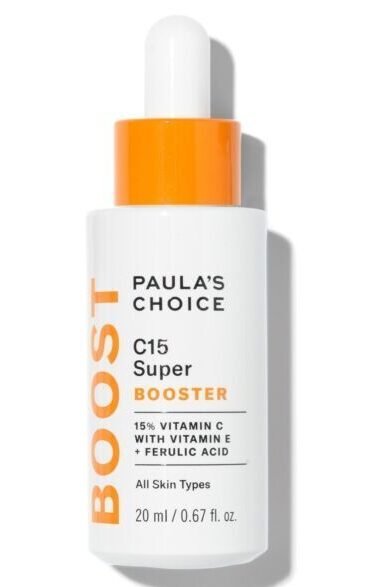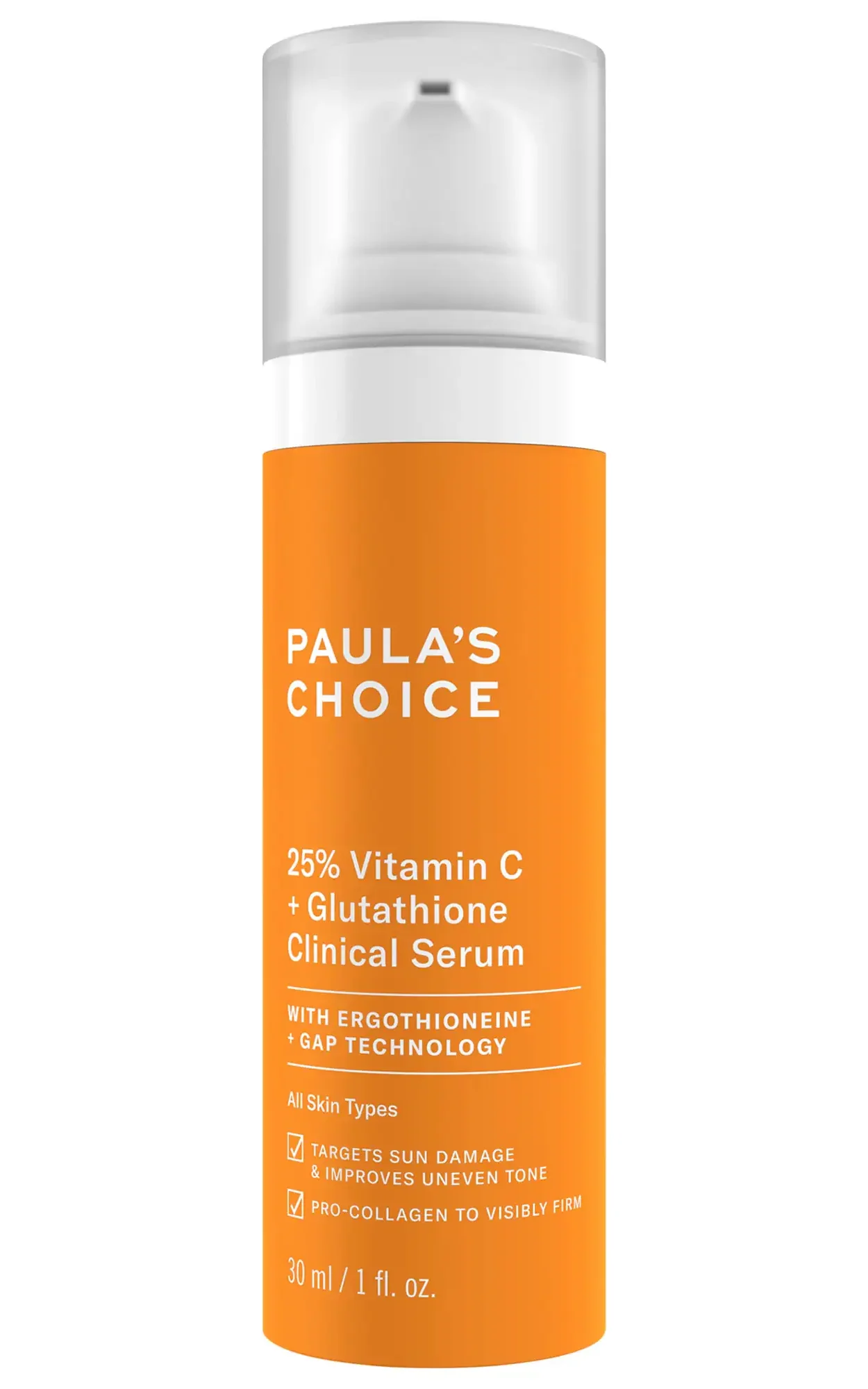
So, we’ve all heard about Vitamin C serum, right? If you’re itching to experience the fantastic benefits of Vitamin C serum journey but feeling overwhelmed about the process, fear not—this is your perfect place to start! In this deep dive, we’ll explore how to use Vitamin C serum in your skincare routine for that perfect bulletproof glow.
How to Use Vitamin C Serum for the Perfect Bulletproof Glow
The beauty of Vitamin C is its versatility—it’s got benefits for pretty much all skin types and comes in all sorts of products. Mastering how to use Vitamin C serum right starts with choosing the right product, so you can maximize the benefits.
Choosing the Right Vitamin C Serum
Here are key considerations to ensure your choice of Vitamin C serum aligns with your skin’s needs:
Concentration
First things first, opt for a serum with a Vitamin C concentration ranging from 10-20%. This range is potent enough to yield results without causing irritation for most skin types. Consider your skin sensitivity and pick the concentration that suits you.
Forms of Vitamin C
There are many different forms of vitamin c serums, all differing in potency, stability, and solubility.
Water vs Oil solubility:
Topical vitamin C can either be water-soluble or oil-soluble. Water-soluble Vitamin C is lighter in texture and easily absorbed into the skin—perfect for individuals with oily or acne-prone skin. Oil-soluble Vitamin C is more stable, making it less prone to oxidation and often preferred for individuals with dry or mature skin.
Water-soluble forms of vitamin C are typically used in serums and toners, while oil-soluble forms are common in oil-based Vitamin C products like creams and oils.
Here’s a list of topical vitamin c forms commonly found in skincare products:
- L-Ascorbic Acid: Considered the most potent form, water-soluble, but may cause irritation in some individuals. Proper storage and formulation are crucial for stability.
- Sodium Ascorbyl Phosphate: Stable and less likely to cause irritation, but may not be as potent as L-ascorbic acid. Water-soluble.
- Magnesium Ascorbyl Phosphate: Stable, water-soluble, and suitable for sensitive skin but may have a slightly lower potency compared to L-ascorbic acid.
- Ascorbyl Tetraisopalmitate: Stable and oil-soluble, less irritating than L-ascorbic acid, but potency may be lower.
- Ethyl Ascorbic Acid: Stable and considered less irritating than L-ascorbic acid.
- Tetrahexyldecyl Ascorbate: Oil-soluble and stable, potency may be lower compared to L-ascorbic acid.
Choosing the right form often depends on individual skin characteristics and concerns.
Additional Skincare Ingredients
Look for serums that include complementary ingredients such as hyaluronic acid for hydration or ferulic acid for enhanced stability. These combinations can really amplify the benefits of Vitamin C serum. We’ll get to some more ingredient combinations to use with vitamin c serum in just a minute.
Product Recommendations

Best Vitamin C Serum for High Potency
Paula’s Choice C15 Vitamin C Super Booster contains 15% L-ascorbic acid, as well as Ferulic Acid, Vitamin E, and hyaluronic acid to enhance the benefits of vitamin C and protect the skin.

Best Vitamin C Serum for Sensitive Skin
Paula’s Choice 25% Vitamin C + Glutathione Clinical Serum contains 25% tetrahexyldecyl ascorbate, and has received praises reviews from several customers with sensitive skin on the website. This product also contains glutathione and ergothioneine which boost its antioxidant benefits
Frequency
Many users start seeing improvements in their skin within a few weeks to a couple of months of consistent use; the key word here is consistency. Regular and consistent use is key to maintaining its benefits over the long term.
While Vitamin C is generally safe for daily use, some individuals may experience skin sensitivity or irritation, particularly with higher concentrations. So, it’s advisable to start gradually and monitor your skin’s response.
We recommend starting with every other day, and adjusting based on how your skin tolerates your vitamin C product. Remember, excessive use doesn’t necessarily yield greater benefits.
The Right Time to Apply Vitamin C Serum
Another awesome note about vitamin C serum is that it can be applied in your skincare routine both during daytime and nighttime, each offering different sets of benefits.
Morning Skincare Routine
Rise and shine! Use vitamin c serum after cleansing, and before moisturizer. Using your skincare products in the correct order is crucial in making sure that you can reach the full potential benefit!
Applying Vitamin C in the morning will shield the skin from environmental stressors like UV rays and pollution. But hey, just a reminder—it’s NOT a replacement for sunscreen.
Night-time Skincare Routine
Incorporating Vitamin C serums at night supports the skin’s natural repair processes, promoting collagen production and addressing concerns like hyperpigmentation and discoloration. If you use other active ingredients, this is the time to incorporate them, ensuring they don’t conflict with Vitamin C.
Best Skincare Combinations with Vitamin C Serum
Now, Vitamin C is versatile and plays well with other skincare ingredients. Consider incorporating these dynamic duos into your routine:
- Vitamin C + Hyaluronic Acid: It’s like a power couple! While Vitamin C brightens, hyaluronic acid adds a powerful punch of hydration, leaving your skin radiant and plump.
- Vitamin C + Retinol: This anti-aging combination will address pigmentation and tackle fine lines and wrinkles at the same time. Use Vitamin C in the morning and retinol in the evening to avoid skin irritation.
- Vitamin C + Vitamin E: Vitamin E complements the benefits of Vitamin C, providing additional protection against environmental stressors and boosting each other’s anti-aging benefits.
Oxidation
The arch-enemy of Vitamin C is oxidation, a process that can compromise its effectiveness. So, let’s prevent this:
- Storage: Keep your Vitamin C serum in a cool, dark place away from direct sunlight.
- Packaging: Opt for serums with airtight, opaque packaging that shield the product from air and light.
- Refrigeration: Some serums benefit from refrigeration, which can further slow down the oxidation process.
And make it a habit to regularly check the color of your Vitamin C serum; if it turns a dark color, it might be an indication of oxidation, and its efficacy may be compromised
Potential Side Effects
Though Vitamin C is generally safe, some individuals may experience mild side effects like irritation, and allergic reactions. Start with a lower concentration of Vitamin C if you have sensitive skin, and conduct a patch test before starting its use. Vitamin C serums can also stain your clothes, so make sure you let it fully absorb before dressing.
What is a Vitamin C serum, and how does it work?
So, let’s demystify Vitamin C. This skincare marvel is a potent antioxidant known for its skin-transforming properties. Vitamin C, scientifically termed ascorbic acid, works to promote collagen production, neutralize free radicals, and brighten the skin.
Benefits of Vitamin C Serum
- Antioxidant Powerhouse: As a stellar antioxidant, it protects skin health against environmental stressors and free radicals that contribute to premature aging.
- Collagen Booster: Vitamin C stimulates collagen production, reducing the appearance of fine lines and wrinkles, and maintaining skin elasticity.
- Brightening Agent: Say goodbye to dull skin! Vitamin C inhibits melanin production, effectively lightening dark spots and hyperpigmentation.
- Sun Damage Defense: Incorporating Vitamin C into your routine can enhance your skin’s resistance to UV damage. Of course, it’s not a substitute for sunscreen.
- Hydration Support: Beyond its brightening effects, Vitamin C helps the skin retain moisture, contributing to a plump and youthful complexion.
FAQ Related to How To Use Vitamin C Serum
How often should I use Vitamin C serum?
The frequency of use depends on your skin type and tolerance. Many individuals incorporate Vitamin C serum into their daily routine, while others prefer using it a few times a week. Start gradually and observe how your skin responds.
What should I look for in choosing the right Vitamin C serum?
Pay attention to the Vitamin C concentration (optimal range: 10-20%), the form of Vitamin C that suits your skin type, and the inclusion of complementary ingredients like hyaluronic acid or ferulic acid for enhanced benefits.
Can I use Vitamin C serum with other skincare products?
Absolutely! Vitamin C plays well with others. It pairs beautifully with ingredients like hyaluronic acid for hydration, retinol for anti-aging, and Vitamin E for added antioxidant power.
Can I use Vitamin C serum in the morning and at night?
Yes! In the morning, Vitamin C provides protection against environmental stressors, and at night, it supports your skin’s natural repair processes. Just ensure you apply sunscreen in the morning and follow the correct order of skincare routine.
How do I prevent Vitamin C serum oxidation?
Store your Vitamin C serum in a cool, dark place away from direct sunlight. Opt for airtight, opaque packaging and consider refrigeration for added stability. Regularly check the color—if it turns dark, it might be oxidizing.
What skin type is Vitamin C good for?
Vitamin C is beneficial for various skin types. It helps brighten, protect, and promote collagen production. Individuals with oily, dry, sensitive, or mature skin can find a suitable form of Vitamin C.
Are there side effects of using Vitamin C serum?
A: While Vitamin C is generally safe, some individuals may experience mild irritation or allergic reactions. Conduct a patch test before full application. Staining of clothing may occur if the serum hasn’t fully absorbed.
How long does it take for Vitamin C serum to show results?
Results can vary, but many users notice improvements within a few weeks to a couple of months of consistent use. Remember, skincare is a journey—be patient and consistent.
Can I layer Vitamin C serum with other serums?
Yes, you can! However, consider the order of application. Generally, apply Vitamin C serum before thicker serums or moisturizers. If you’re unsure, consult with a skincare professional.
Conclusion
Now that you’re armed with everything you need to know about using Vitamin C serums correctly, you’re now ready for the journey. Remember, it’s a marathon, not a sprint. Listen to your skin, be consistent, and get ready to rock that healthy, glowing look! Cheers to that bulletproof spotless skin that you’re gonna have!
